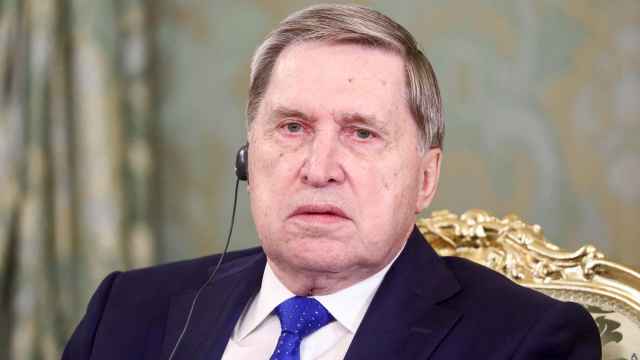MINSK — Belarussian President Alexander Lukashenko won a fourth term Monday after a landslide election marred by a violent police crackdown on demonstrators and the arrest of opposition challengers.
On Sunday up to 10,000 people marched through the snow-bound capital Minsk chanting "Out!," "Long Live Belarus!" and other anti-Lukashenko slogans in one of the most significant challenges yet to his iron-fisted, 16-year rule.
Then riot police waded in, beating people with batons on Independence Square, a Reuters reporter at the scene said. Some protesters in the ex-Soviet republic threw stones and snowballs at police.
Several people were left sprawled on the ground, including an elderly woman who had been hit on the head. Others were bundled into police cars. The opposition reported at least three candidates detained.
One of them, 56-year-old Andrei Sannikov, had earlier told the crowd: "Down with the rule of Lukashenko, freedom for Belarus!"
Another, Vladimir Neklyayev, was beaten by police who fired shots into the air to disperse a column of his supporters trying to join the main rally, a Reuters witness said. His wife said he was later taken by police from his hospital bed, where he was recovering from head injuries.
The Interior Ministry accused Neklyayev's supporters of provoking the clash.
Early on Monday the state electoral commission said Lukashenko had won 79.7 percent with 100 percent of votes counted. It put voter turnout in sub-zero temperatures at more than 90 percent.
The opposition says Lukashenko rigged the vote.
The European Union is watching closely, weighing how far to engage with the country of 10 million on its eastern flank, amid tension between Lukashenko and chief benefactor Russia.
The head of the European Parliament, Jerzy Buzek, said the incident involving Neklyayev was unacceptable. "This cowardly attack on a defenseless candidate for president of Belarus is outrageous and disgraceful," he said in a statement.
Challenge to Lukashenko
An aide to nationalist candidate Grigory Kostusev said the 53-year-old had been stopped in his car and arrested.
In the main rally, some demonstrators broke the glass doors to the government building but were restrained by others in the crowd, a Reuters reporter said.
Veteran leader Lukashenko, 56, had earlier scoffed at the opposition's plans to protest against the conduct of the election. He predicted nobody would turn out.
During Lukashenko rule, Belarus' command economy has been propped up by energy subsidies from chief ally Russia. The country serves as a buffer between Russia and NATO and a transit route for Russian gas heading to Europe.
But relations with Moscow have been on the rocks in recent years, and the mustachioed former state farm director has been courting the West.
The European Union has dangled the prospect of financial aid if Sunday's vote is deemed fair. It will take its cue from monitors from the Organization for Security and Cooperation in Europe (OSCE), who report back on Monday.
The OSCE had said on Sunday that the election already appeared "better" than in 2006.
One opposition figure told protesters on October Square that, according to an unofficial opposition exit poll, Lukashenko won only 30.7 percent against Neklyayev's 18 percent. He called for a second round of voting.
State security forces gave a warning on the eve of the vote that they would crack down on attempts to "whip up tension."
Lukashenko crushed dissent harshly in the early years of his rule, jailing opponents and muzzling the media. He was dubbed Europe's 'last dictator' by the Bush administration.
A Message from The Moscow Times:
Dear readers,
We are facing unprecedented challenges. Russia's Prosecutor General's Office has designated The Moscow Times as an "undesirable" organization, criminalizing our work and putting our staff at risk of prosecution. This follows our earlier unjust labeling as a "foreign agent."
These actions are direct attempts to silence independent journalism in Russia. The authorities claim our work "discredits the decisions of the Russian leadership." We see things differently: we strive to provide accurate, unbiased reporting on Russia.
We, the journalists of The Moscow Times, refuse to be silenced. But to continue our work, we need your help.
Your support, no matter how small, makes a world of difference. If you can, please support us monthly starting from just $2. It's quick to set up, and every contribution makes a significant impact.
By supporting The Moscow Times, you're defending open, independent journalism in the face of repression. Thank you for standing with us.
Remind me later.





